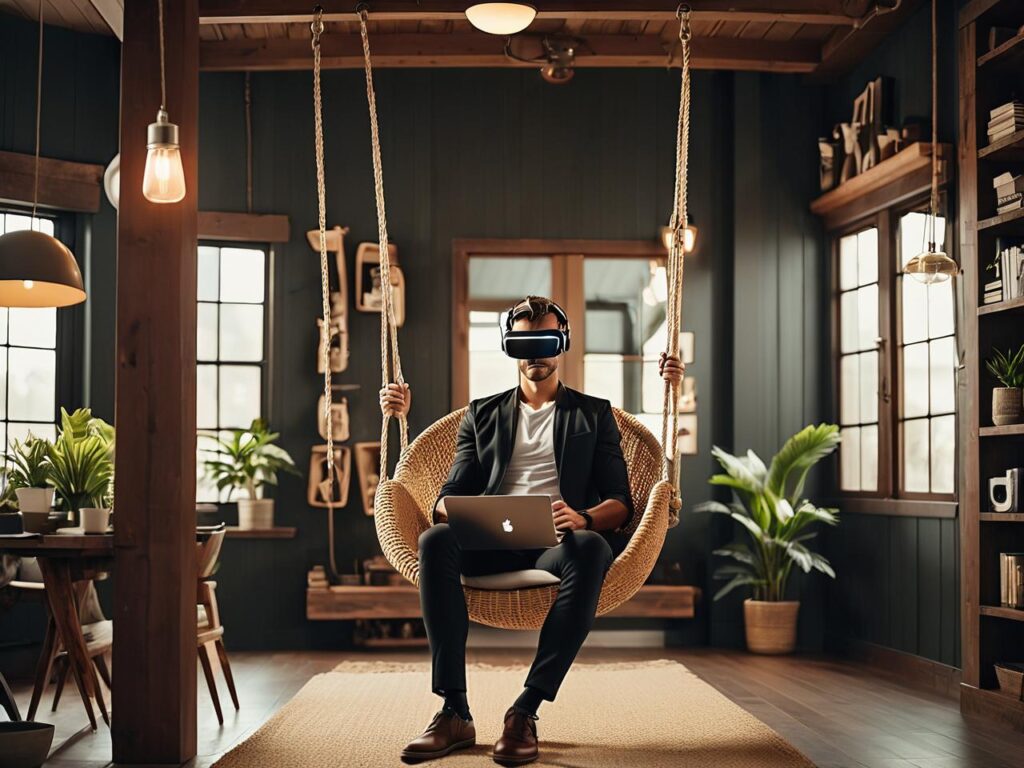
Virtual Reality (VR) enhances real-world environments by overlaying digital information or virtual objects in the virtual world. Here’s how VR is utilized in various industries:
- Archviz (Architectural Visualization):
- Uses: VR offers immersive experiences for architects, interior designers, and real estate professionals to visualize and explore architectural designs.
- Examples: Architects can create VR simulations of buildings and interiors, allowing clients to “walk through” virtual spaces and experience the design firsthand. Real estate agents can offer virtual property tours, enabling prospective buyers to explore homes remotely. For instance, a VR headset can transport users into a virtual representation of a property, where they can freely move around and inspect details.
- Education:
- Uses: VR provides immersive educational experiences that enhance learning and engagement.
- Examples: Schools and universities can use VR simulations to bring historical events to life or to explore inaccessible locations like outer space. Students can immerse themselves in virtual environments related to their studies, such as biology labs or historical reconstructions. For example, a history class could take a virtual field trip to ancient Rome, allowing students to explore the city and interact with historical figures.
- Events and Exhibitions:
- Uses: VR transforms events and exhibitions into immersive and interactive experiences that captivate attendees.
- Examples: Event organizers can create VR experiences that allow attendees to explore virtual venues or interact with virtual exhibits. Exhibitors can offer VR demonstrations of products or services, providing a unique and memorable experience for visitors. For instance, a car manufacturer can offer virtual test drives of new models, allowing attendees to experience the vehicle’s features in a virtual environment.
- Experiential Advertising:
- Uses: VR enables brands to create immersive advertising experiences that deeply engage consumers.
- Examples: Brands can develop VR experiences that allow users to interact with products or brand messaging in virtual environments. For example, a travel agency can offer virtual tours of vacation destinations, allowing users to experience the sights and sounds of different locations. Similarly, a beverage company can create a VR game that immerses players in a branded world, reinforcing brand awareness and loyalty.
